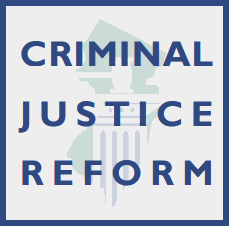New Jersey Supreme Court Decision – Public Employment Law
On July 23, 2024, the New Jersey Supreme Court decided In re Brian Ambroise, 258 N.J. 180 (2024), addressing disciplinary action taken against a correctional officer. The Supreme Court held that the New Jersey Civil Service Commission acted arbitrarily and unreasonably in reducing the Department of Corrections’ (DOC) recommended penalty of removal to a six-month suspension.
Facts and Procedural History of the New Jersey Supreme Court Decision
Senior Correctional Police Officer Brian Ambroise had worked for the Department of Corrections at the Edna Mahan Correctional Facility for Women since 2013. In December 2020, Ambroise faced disciplinary charges based on accusations of inappropriate conduct with an inmate, J.O., including undue familiarity and failure to report a significant incident. J.O. alleged she had a sexual relationship with Ambroise and that he performed favors for her, such as bringing contraband and passing messages between inmates. Ambroise admitted to kissing J.O. but failed to report the incident, despite knowing the DOC’s mandatory reporting policy. He also admitted to passing a message between inmates, which violated DOC policy.
In 2016 Ambroise was arrested and charged with second-degree sexual assault, N.J.S.A. 2C:14-2(c)(2), and second-degree official misconduct, N.J.S.A. 2C:30-2(a). At the conclusion of the criminal trial in 2018, a jury acquitted Ambroise on all charges. The matter was then forwarded to the DOC for administrative action.
Lower Court’s Decision and Civil Service Commission’s Involvement
The DOC issued final disciplinary charges against Ambroise seeking his removal for conduct unbecoming a public employee, N.J.A.C. 4A:2-2.3(a)(6), and other sufficient cause, and for other violations of DOC policies. A hearing was held in November 2020, and a final disciplinary action sustaining all the charges against Ambroise and proposing his removal was issued in December of that year. Ambroise appealed the DOC’s decision, and the matter was transmitted to the Office of Administrative Law (OAL) for a hearing as a contested case.
At the conclusion of a hearing, an Administrative Law Judge (ALJ) modified the penalty from removal to a 20-day suspension, sustaining only the failure-to-report charge and dismissing the other allegations. The DOC appealed the ALJ’s decision to the Civil Service Commission. The Civil Service Commission agreed that Ambroise’s conduct was concerning but reduced the penalty to a six-month suspension, citing his previously unblemished record and the fact that the most serious charges were not proven.
The Appellate Division affirmed Ambroise’s six-month suspension.
Legal Issues and New Jersey Supreme Court Decision’s Analysis
The key legal issue was whether, on de novo review, the Civil Service Commission’s decision to impose a six-month suspension on a correctional officer instead of the recommended sanction of removal was arbitrary, capricious, and unreasonable. The New Jersey Supreme Court concluded that the Commission failed to properly weigh the gravity of Ambroise’s violations, which compromised the safety and security of the prison. The Court emphasized that correctional officers must adhere to a high standard, especially when their conduct directly undermines institutional order and discipline.
Court’s Conclusion in the New Jersey Supreme Court Decision
The Court held that Ambroise’s actions, including his failure to report an unusual incident and his undue familiarity with an inmate, warranted his removal from employment. Progressive discipline, according to the Court, was inappropriate given the severity of the infractions. The decision further stressed the DOC’s expertise in maintaining prison safety and the importance of respecting its judgment in disciplinary matters.
Key Takeaways from the New Jersey Supreme Court Decision
In conclusion, the New Jersey Supreme Court reversed the Civil Service Commission’s decision and reinstated the DOC’s recommended penalty of removal. The case underscores the importance of strict adherence to prison policies and the high standard of conduct required of correctional officers to maintain the security and order of correctional facilities. The ruling demonstrates that serious misconduct can bypass progressive discipline, particularly when public safety is at risk.
Criminal law is complicated and constantly changing. If you are facing criminal charges, you should immediately contact our team of experienced former prosecutors to schedule a free case review with one of our expert criminal defense attorneys. A complete understanding of criminal law by your attorney is crucial to your defense. Your rights and freedoms are in jeopardy, and you owe it to yourself to act. We are available to provide immediate assistance and further counsel on your case at 862-315-7929.
No aspect of this attorney advertisement has been approved by the Supreme Court of New Jersey.












